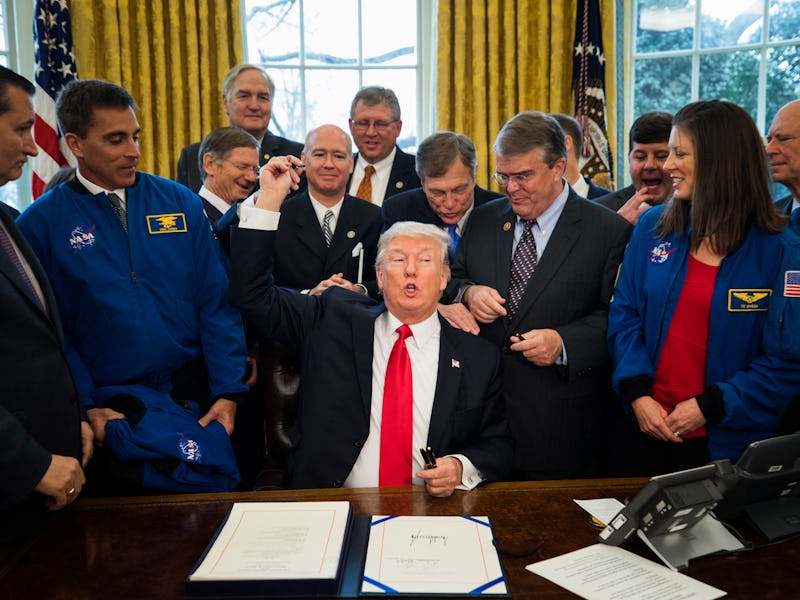After months of radio silence, Vice President Mike Pence confirmed that President Donald Trump would indeed follow through with plans to resurrect the National Space Council, an advisory body with a long, fraught existence and unclear accomplishments. Last year, the Trump campaign repeatedly voiced plans to bring back the NSC should Trump be elected.
It wasn’t immediately clear how this would impact NASA and American space policy positively. It still isn’t clear.
See, the reason the NSC was shut down multiple times is because it’s never really been that important. President Dwight Eisenhower established the NSC (as the National Aeronautics and Space Council) in 1958, and it barely had any influence on the direction of NASA. President John F. Kennedy decided to hand it off to his vice president, Lyndon Johnson, under whom it languished. President Richard Nixon finally put the damn thing out of its misery in 1973.
Then, President George H.W. Bush dug it up in 1989 with the intent of making it a way for the heads of multiple agencies (including the CIA and NSA) to provide insight into how the American space program could be directed to benefit a broader swath of national interests. Unfortunately, the council was to led by Vice President Dan Quayle, a politician who famously misspelled the word “potato”. The NSC was never given a chance, and it folded again in 1993 under President Bill Clinton.
Space policy has arguably gotten by quite alright without the NSC. Exactly what it could accomplish in the Trump era is debatable, but the biggest reason would be to create a focal point with which the federal government could better interface with the private industry and foster more public-private partnerships. Trump and his allies have expressed a great deal of optimism for the potential of the commercial sector to take on many of NASA’s operations and projects. The NSC may not simply act as a meeting point for federal agencies to talk about space; it might also be a way to allow those agencies to talk to private sector leaders about how the latter can take a larger role in space.
There’s also reason to believe Trump may push for a bigger militarization of space, a sentiment Pence, who will chair the NSC, has also noted. Putting more military assets into orbit or beyond will probably be a very big point of interest for an NSC stacked with intelligence experts.
The move to bring the NSC back would seem to be an effort to wrest control of American space policy from NASA and allow these other parties a bigger slice of the pie, so to speak. The NSC might be an effective way to promote these agendas — or history might repeat itself and the NSC becomes simply another ineffective body without much influence on the overall policy of space travel and exploration. It will be up to Trump — or perhaps, rather, Pence — to decide exactly what happens next.
